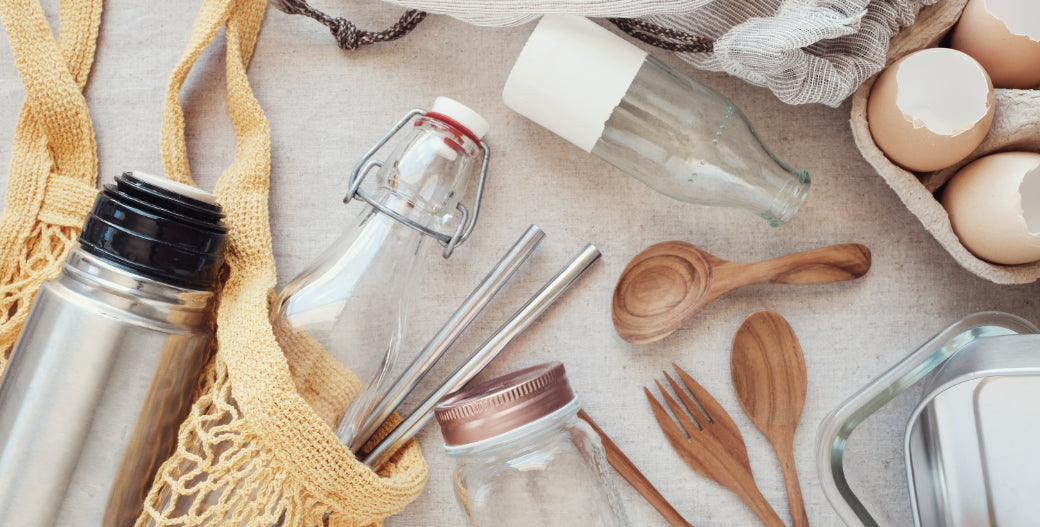How Clean Does Your “Clean Lifestyle” Need To Be?
11.06.25
Scroll through IG for 5 minutes and you’ll soon stumble on a wellness influencer preaching clean living. Organic everything, toxin-free this, chemical-free that. It's enough to make you think everything in your home is slowly killing you.
We're all for making healthy choices and backing yourself to be fit and well, but we're also curious about trends. The "clean living" movement has evolved way beyond what's useful and accessible, and some of the messaging might be putting people off completely.
The question is, how clean does your clean lifestyle really need to be? And where should you focus your energy?
What Does Clean Living Mean in 2025?
Clean living used to be straightforward. Eat your veg, get some fresh air, don't smoke. These days, it's got us worrying about pretty much everything, from the products we put on our skin to the way we clean our houses. The goalposts keep moving, and of course with every new fear there’s a pricey solution to buy. Common sense still prevails, but the amount of “influencing” online means even the most sensible of us start to doubt ourselves.
What Are Microplastics & Should I Be Worried?
Microplastics are tiny plastic particles that can shed from everyday items like cleaning cloths, food storage containers, and packaging. Research shows they can accumulate in our organs and may cause health issues, but we're still learning about what levels of exposure matter. The solution isn't panic-buying glass everything – it's making sensible swaps when you can, like using natural cleaning cloths and not microwaving plastic containers.
What Are Endocrine Disruptors?
These chemicals can interfere with your hormone systems and are found in some plastics, cleaning products, and personal care items. Chronic exposure to high levels can affect hormones, but context is important. Occasional use of conventional products isn't going to wreck your health. Focus on the big wins first – sleep, movement, whole foods, and stress management will do more for hormonal health than worrying about every product label.
The Evolution of Clean Lifestyles
Clean living has its heart in the right place. Back in the day, it was all about focusing on whole foods, cutting back on ultra-processed stuff, cooking more at home. But somewhere along the way, the message shifted from "eat well and move your body" to "everything you're doing is dangerous."
Let’s have a reality check. Humans have been thriving for thousands of years without needing to filter their air or store leftovers in pricey glass containers. We're more resilient than the wellness industry wants us to believe.
But on the other hand, our environment used to be completely different. We didn’t buy so much plastic, there was much less choice of skincare and cleaning products, and the air was cleaner in towns and cities.
Perhaps the answer lies in choosing your battles. What do you think? We’d love to hear your opinion on all this.
5 Realistic Ways to Live a Cleaner Wellness Lifestyle
Food: keep it simple, not sterile
Eating more whole foods is beneficial, but it doesn’t need to be organic. Buying local, seasonal produce is great if you can afford it, but it’s not the end of the world if you can’t. Shop the perimeter of the supermarket more often, cook at home when you can, and don't stress about the occasional ready meal. Frozen veg counts as real food.
Cooking: glass is nice, but not essential
Some evidence suggests reducing plastic contact with hot foods is sensible, but you don't need to bin everything immediately. Use what you've got, then when your replacing items, consider glass or stainless steel. Rather than throwing away old jars, use them for soups, sauces, etc.
Cleaning: Your grandma was onto something
Simpler alternatives to cleaning products often work just as well and cost less. White vinegar, bicarbonate of soda, and castile soap handle most cleaning jobs brilliantly. Your gran's methods were practical and have stood the test of time.
Air Quality: Don't hold your breath
Air quality matters if you have asthma or live in a heavily polluted area, but most of us don't need to panic about it. Open your windows for natural ventilation - it's free. Exercising outdoors? Try to avoid rush hour and main roads when possible, but don't let it stop you getting out there. Enjoy using candles and diffusers if you like them – research is limited about the impact of occasional candles.
Skin: less is often more
Everything that touches your skin is under scrutiny from the toxin police, from laundry detergent to deodorant. Yes, your skin is the body’s largest organ, so you’re right to think twice about what you put on it. But the skin is good at keeping things out. If you have sensitive skin, fragrance-free options often help. Otherwise, use what works for you and your budget.
Stay Curious About Wellness Debates
The wellness industry thrives on giving you solutions to problems, but living well doesn't mean perfection (or a big budget). Be curious about new information, but don't let influencers scare you into thinking your current choices are wrong. There’s a lot of greenwashing out there.
Keep it simple and go back to basics where you can. Natural soap, glass jars when convenient, whole foods when possible, and movement that makes you feel capable and strong. The fundamentals have served humans well for generations, and they'll serve you well too.
Remember, fitness is for every body and everybody. Don't let perfectionist wellness culture be a barrier to living the healthy life you deserve.















